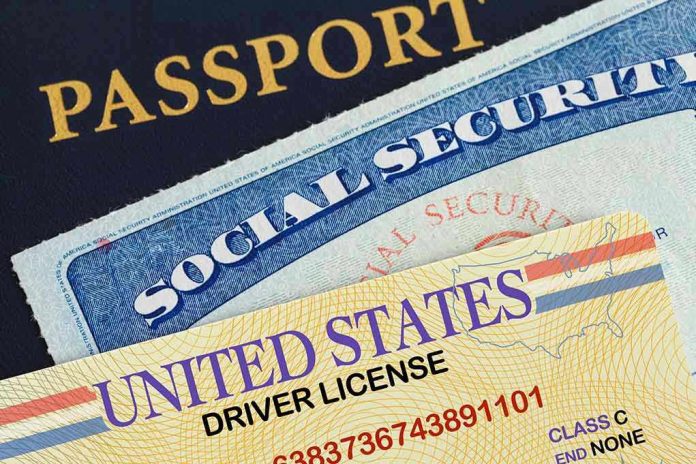
California’s recent revocation of 17,000 commercial driver’s licenses marks a significant federal intervention in state-issued licenses—a move fraught with legal, economic, and social ramifications.
Story Overview
- California revoked 17,000 CDLs issued to immigrants under federal pressure.
- Action followed fatal crashes involving undocumented drivers with CDLs.
- Federal audit accused California of issuing licenses illegally.
- Tensions rise between state immigration policies and federal enforcement.
Federal Pressure on State Policies
California’s decision to revoke these licenses stems from an emergency order by the U.S. Department of Transportation, led by Secretary Sean P. Duffy. The order followed two deadly crashes involving undocumented immigrant drivers with California-issued CDLs. The federal government accused California of issuing these licenses illegally, leading to a broader crackdown and stricter federal rules.
The revocation represents a pivotal moment in the ongoing debate over state versus federal authority in immigration and licensing. California, which has historically issued licenses to residents regardless of immigration status, now faces scrutiny and potential financial penalties if compliance with federal standards is not met.
The Impact on Immigrant Drivers and the Trucking Industry
The immediate revocation of 17,000 licenses has left thousands of immigrant drivers unemployed, creating a ripple effect in the trucking industry. The sector, heavily reliant on immigrant labor, now grapples with potential workforce shortages. This move could disrupt supply chains, particularly in California, where the demand for commercial drivers is high.
Moreover, the revocation has sparked fear and uncertainty among undocumented workers, highlighting the broader implications of federal immigration enforcement on local economies and communities. It also underscores the tension between public safety imperatives and immigrant integration efforts.
Political and Legal Dynamics
The decision underscores a significant federal-state conflict. Governor Gavin Newsom, while complying with the federal order, criticized it as politically motivated. His administration defends California’s licensing practices, arguing they enhance road safety and regulation. However, federal officials maintain that stricter standards are necessary to ensure public safety and legal compliance.
The federal government wields considerable power through funding and regulatory authority, which limits California’s recourse in resisting such mandates. The revocation exemplifies the complex power dynamics and legal challenges inherent in federalism.
Long-term Implications and Industry Adjustments
In the long term, the revocation could lead to significant changes in how states issue commercial licenses, particularly concerning documentation and English proficiency requirements. The trucking industry may need to adjust recruitment and compliance practices to adapt to these new standards.
Overall, this development is likely to prompt other states to evaluate their licensing practices to avoid similar federal interventions. As the debate over immigration policy and public safety continues, the revocation of these licenses remains a critical case study in the balance of state and federal powers.
Sources:
U.S. Department of Transportation



